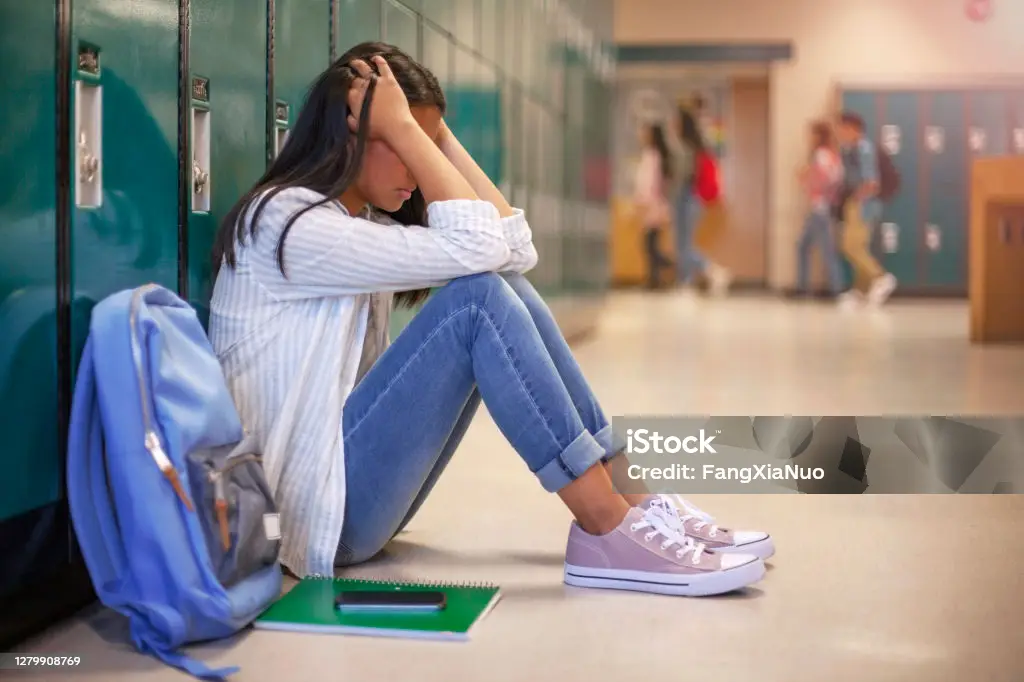Bullying in Schools
Posté le 11 April 2024 dans Public law.
How to React When Your Child is a Victim of Bullying? What to Do to Help Them? Who to Turn to?
The figures reported by the government are alarming: nearly one million children have experienced bullying over the past three years, and on average, two students per class are victims of bullying.
Bullying in schools is a serious and concerning problem, to the extent that the government addressed it on September 27, 2023, through an interministerial plan to combat bullying in schools and cyberbullying.
The stated objective is to improve and coordinate the response of state services to this scourge.
School bullying is defined as repeated violence that can be verbal, physical, and/or psychological. The phenomenon sometimes extends online, which is then referred to as cyberbullying.
It can have serious consequences on the mental, emotional, and even physical health of children and adolescents. It is characterized by repeated, intentional, and aggressive behaviors aimed at harming another person, whether physically, verbally, socially, or online.
The success of social networks among students can often lead to a situation of cyberbullying, exacerbating the seriousness of the initial bullying situation.
I- Alerting the School
Before considering legal or contentious steps, your first instinct should be to use the anti-bullying measures put in place by schools, which have multiplied:
- Report it to the teacher(s) and the educational team of your child;
- Meet with the school principal or headteacher and request concrete actions;
- Inform the Regional Education Authority (Rectorat) of the bullying situation, the actions taken by the headteacher, and the outcome of those actions if they prove to be insufficient;
- Call the helpline number 3018 to report a problematic situation; Schools must record all cases of bullying and may refer them to the public prosecutor’s office when they are deemed worrying. Stated objectives for preventing bullying situations and their risks are materialized through numerous actions:
- Establishment of a national day to combat bullying on November 9, with two hours dedicated to the subject. The opinions of all students from CE2 to terminal will be collected through an anonymous self-assessment questionnaire to gather students’ opinions;
- Deployment of a Mobile Academic Security Team (EMAS) to intervene urgently in schools, at the request of the headteacher, to assist in addressing the bullying situation; For your own records, it is advisable to gather evidence, often by taking screenshots. Simultaneously, setting up psychological support is highly recommended so that your child can address this situation with a professional.
II- What to Do If the Bullying Situation Does Not Stop?
1) Complaint Against the Perpetrator(s)
If the situation does not improve, you will need to file a complaint against the perpetrator(s) on behalf of your child, either at a police station or gendarmerie, or by directly addressing your written complaint to the Public Prosecutor. The legal response to the perpetrators may vary (citizenship training, mediation, sanctions such as banning from social networks…). However, the processing times for complaints can be long. Several government actions aim to reduce these delays and improve the legal response:
- Objective of better coordination between services as outlined in the interministerial plan to combat bullying in schools and cyberbullying dated September 27, 2023;
- Implementation of a common evaluation grid (police, gendarmerie, justice) to better take into account complaints, allowing each actor to assess the seriousness of the situation;
- Establishment of a harmonized national system to handle victims’ complaints by the Office of Minors (OFMIN); If the bullying situation still does not stop or worsens, the possibility of recourse against the school may be considered.
2) Recourse Against the School
In the absence of an effective and rapid response, bullying situations can quickly escalate. In the event of fault or negligent failure by the school, the possibility of seeking compensation through the administrative court may be considered.
If the school implements insufficient measures or fails to act, it may be liable for the State’s responsibility. The State’s liability will be resolved through compensation granting the victim or their heirs damages. Administrative courts will carefully examine the actions taken by the school and the regional education authority.
For example, a parent’s compensation claim may have been rejected by the administrative court, which considered that the school and the regional education authority had taken necessary actions to address the bullying situation, with the bullying student being permanently expelled less than 2 months after the incident was reported and after a temporary suspension.
In another case, the State’s liability was questioned where the bullying incidents primarily occurred on the Facebook social network, but not exclusively. The State’s liability was engaged due to bullying incidents that occurred within the school, with the severity of the bullying occurring on social networks partially mitigating the State’s liability.
However, abusive recourse may expose you to payment of costs if you lose your case before the court, and also to a complaint for malicious denunciation if the facts subject to a bullying complaint are found to be inaccurate. The assistance of a specialized public law attorney will help you prepare your recourse.
LBV AVOCATS Law Firm is at your disposal to assist you.
Useful Links:
https://www.gouvernement.fr/actualite/stop-au-harcelement-a-lecole
https://www.education.gouv.fr/non-au-harcelement/mon-enfant-est-victime-de-harcelement-323014
